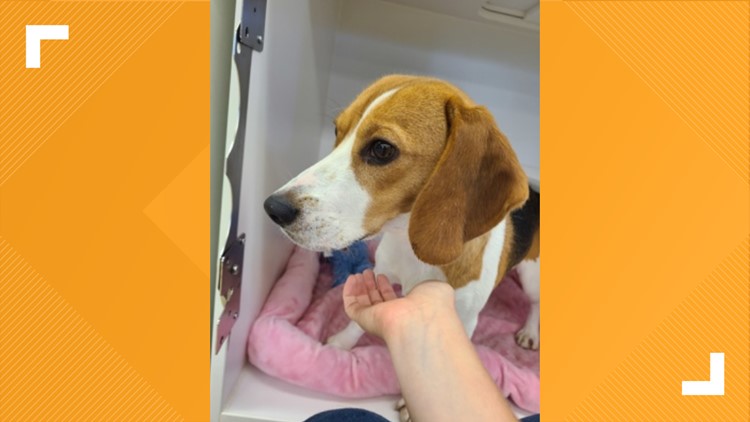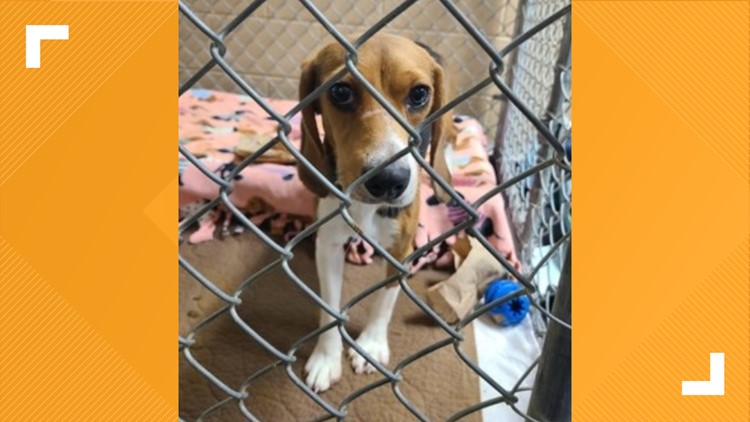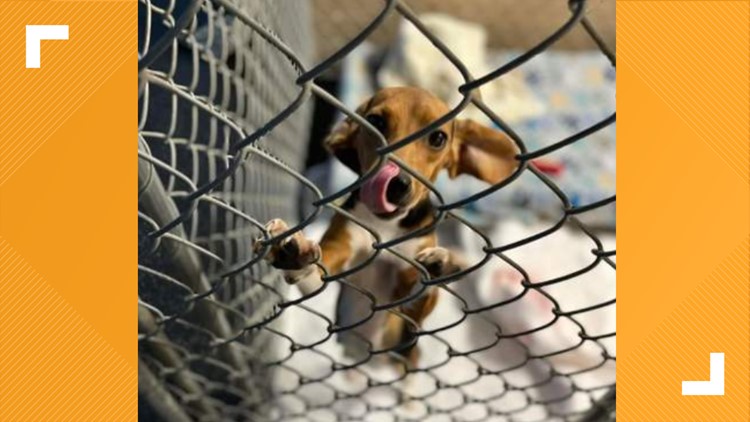FORT WAYNE, Ind — An Indiana animal shelter is helping in the historic effort to find forever homes for 4,000 beagles rescued from a Virginia facility that investigators say performed unnecessarily painful medical experiments on dogs and puppies, including euthanasia without sedatives.
Many of the dogs at Envigo, a mass breeding and research facility, were bound to be sold to animal testing laboratories. Now, they're one paw closer to a life well-loved, thanks to shelters across the country taking in the beagles and putting them up for adoption.
One of those shelters that pitched in is Humane Fort Wayne.
On Aug. 18, the northern Indiana shelter traveled to Virginia to rescue 25 beagles from the facility. All 25 of those beagles were quickly adopted, so they went back for more.
The shelter brought home 25 more beagles this week. On Wednesday they announced the first group of beagles will be adoptable Thursday when the shelter opens at 11 a.m.
GALLERY: Meet the good girl beagles up for adoption at Humane Fort Wayne
Only pre-approved adopters will be able to visit the dogs. The shelter asks anyone who's interested in adopting or fostering to fill out one of its applications online.
Shelter officials also said because the dogs have spent their entire lives in kennels and cages, they will require extra patience in acclimating to their new homes.
The Humane Society of the United States said it began this operation in July, at the request of the U.S. Department of Justice. In May, the Department of Justice filed a lawsuit that cited the breeding facility, Envigo RMS LLC, for violations of the Animal Welfare Act.
The Humane Society said the last group of 312 beagles was removed from the facility on Sept. 1.
“Our animal rescue team’s work to transfer these beagles is a milestone in a fight we’ve been waging for years," said Kitty Block, president and CEO of the Humane Society.
"It’s ironic that these dogs were only spared from a lifetime of pain, suffering and isolation in testing labs because this breeding facility was cited for Animal Welfare Act violations," Block said. "Most of them would have been sold and spent their short lives in laboratories. Many people don’t realize that an average of 60,000 dogs just like these are still used in laboratories each year."
The organization said the rescued beagles have been placed with more than 120 shelters and other partners across the country.





















